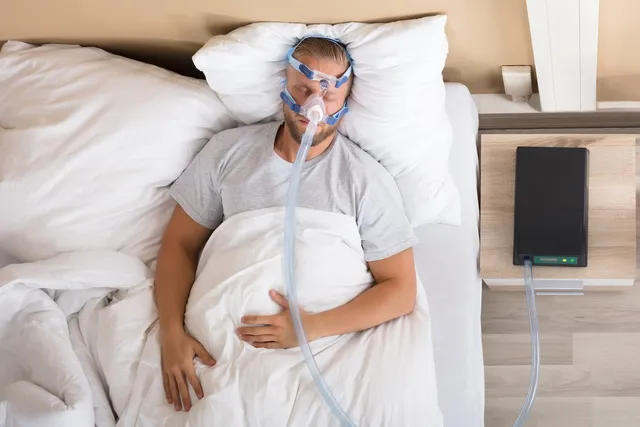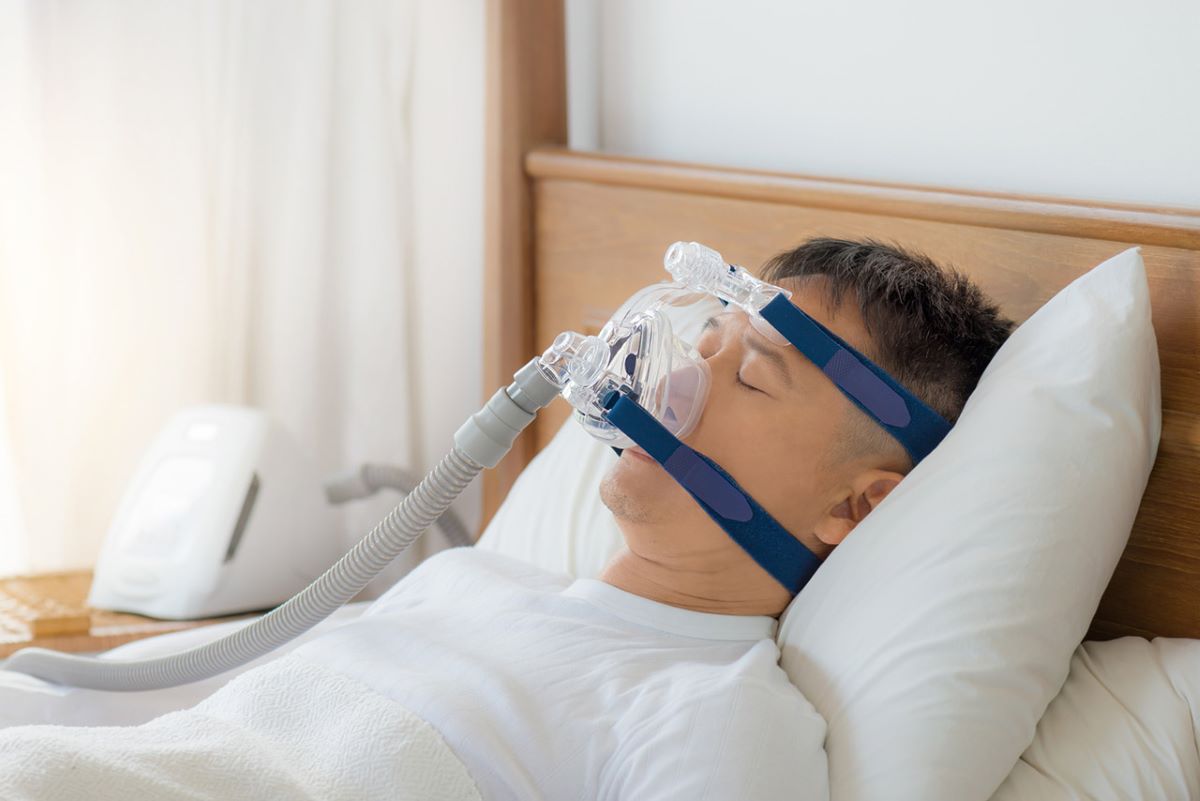If you’re constantly feeling tired despite getting a full night’s sleep, there’s a chance you may be living with sleep apnea—a serious but often underestimated sleep disorder. Many people brush off their symptoms, assuming snoring or fatigue is harmless, but untreated sleep apnea can silently damage your body over time.
In this guide, we’ll uncover the hidden dangers of untreated sleep apnea, explain how it affects your health, and share practical ways to prevent and manage it effectively.
Understanding Sleep Apnea
Sleep apnea is a sleep disorder in which breathing repeatedly stops and starts during sleep. These pauses, called “apneas,” can last a few seconds to a minute and may occur dozens or even hundreds of times a night. Each time your breathing stops, oxygen levels drop, and your body jolts you awake to resume breathing—often without you realizing it.
The Three Main Types of Sleep Apnea
- Obstructive Sleep Apnea (OSA) – The most common form, caused by throat muscles relaxing and blocking the airway.
- Central Sleep Apnea (CSA) – Occurs when the brain fails to signal the muscles that control breathing.
- Complex Sleep Apnea – A combination of both OSA and CSA, often seen in patients using CPAP therapy.
Even though these interruptions are brief, they prevent you from reaching deep, restorative sleep, leaving you tired and unfocused during the day.
Why Sleep Apnea Is Often Overlooked
Sleep apnea is easy to miss because most of its symptoms occur while you’re asleep. Many people only discover they have it after a partner notices loud snoring, choking, or gasping sounds during the night.
Common daytime symptoms include:
- Morning headaches
- Dry mouth or sore throat
- Daytime fatigue
- Difficulty concentrating
- Irritability or mood swings
Because these symptoms can resemble other issues like stress or insomnia, sleep apnea often goes undiagnosed for years—allowing health problems to worsen.
The Hidden Health Dangers of Untreated Sleep Apnea
Ignoring sleep apnea doesn’t just make you tired—it can cause serious, long-term harm to your health. Here’s how untreated sleep apnea can silently affect your body:
1. Heart Disease and High Blood Pressure
When breathing stops, oxygen levels drop, triggering the release of stress hormones. These hormones increase heart rate and blood pressure, straining your cardiovascular system. Over time, this can lead to hypertension, irregular heartbeat, heart attack, or stroke.
2. Type 2 Diabetes
Sleep deprivation affects insulin regulation. People with untreated sleep apnea are more likely to develop insulin resistance, increasing the risk of type 2 diabetes even if they maintain a healthy weight.
3. Cognitive Impairment and Memory Loss
Because the brain receives less oxygen and deep sleep is disrupted, concentration, memory, and decision-making suffer. Chronic sleep apnea has even been linked to early cognitive decline and dementia in older adults.
4. Mood Disorders and Depression
Poor sleep quality interferes with the brain’s ability to regulate mood. People with untreated sleep apnea often experience anxiety, irritability, and depression, affecting relationships and work performance.

5. Weakened Immune System
During sleep, the body repairs itself and strengthens immune defenses. Repeated interruptions reduce these restorative processes, making you more vulnerable to infections and slower recovery from illness.
6. Weight Gain and Hormonal Imbalance
Sleep apnea disrupts hormones that control appetite, such as leptin and ghrelin. This imbalance can lead to overeating and weight gain, which in turn worsens the severity of sleep apnea—a dangerous cycle.
Why You Still Feel Tired After Sleeping All Night
Even after spending eight hours in bed, people with sleep apnea often wake up feeling exhausted. That’s because they experience fragmented sleep, meaning their body never reaches the deep, restorative stages necessary for physical and mental recovery.
This lack of quality sleep can lead to:
- Constant fatigue and brain fog
- Poor work performance and focus
- Mood swings or irritability
- Reduced reaction time, increasing accident risk
Over time, this chronic exhaustion can affect every area of life—from productivity to emotional well-being.
How to Prevent and Manage Sleep Apnea
The good news? Sleep apnea is highly treatable once diagnosed. Here’s how to prevent complications and regain control over your sleep health.
1. Get a Sleep Study
A sleep study (or polysomnography) is the gold standard for diagnosing sleep apnea. It measures your breathing, oxygen levels, and sleep patterns to determine the severity of your condition. You can undergo the test at a sleep clinic or even through a home sleep test prescribed by a doctor.
2. CPAP Therapy
For moderate to severe cases, Continuous Positive Airway Pressure (CPAP) therapy is the most effective treatment. It delivers a steady stream of air through a mask, keeping your airway open throughout the night. When used consistently, CPAP therapy can:
- Eliminate snoring
- Prevent breathing pauses
- Restore energy and focus
- Reduce health risks
3. Weight Management
Since excess weight is one of the main causes of sleep apnea, losing even a small amount of weight can significantly reduce symptoms. Pair a balanced diet with regular exercise for lasting results.
4. Change Sleeping Position
Sleeping on your back can worsen apnea symptoms because gravity allows the tongue and soft tissues to block the airway. Try sleeping on your side to promote smoother breathing.
5. Avoid Alcohol and Sedatives
These substances relax throat muscles, increasing the risk of airway obstruction. Limiting alcohol, especially before bedtime, can improve nighttime breathing.
6. Use Oral Appliances
For mild to moderate cases, a custom dental device can reposition your jaw and tongue to prevent airway collapse. These are often recommended for people who find CPAP machines uncomfortable.
7. Surgical Treatments
In severe or structural cases, surgery may be an option. Procedures like uvulopalatopharyngoplasty (UPPP) or nerve stimulation help widen the airway and improve breathing patterns.
The Role of Lifestyle in Sleep Health
Improving your sleep health goes beyond treating apnea—it’s about creating habits that promote deep, restorative rest.
Try these tips:
- Maintain a consistent sleep schedule
- Avoid screens before bedtime
- Create a cool, quiet, and dark sleep environment
- Stay physically active during the day
- Manage stress with relaxation techniques like meditation or yoga
These changes support overall wellness and enhance treatment effectiveness.
Conclusion: Don’t Ignore the Warning Signs
Untreated sleep apnea is more than just snoring—it’s a serious health risk that can shorten your lifespan and reduce your quality of life. If you suspect you have sleep apnea, don’t wait. Talk to your doctor about a sleep study and explore effective treatments like CPAP therapy or lifestyle modifications. Restful sleep isn’t a luxury—it’s essential to your heart, brain, and overall well-being.
Untreated sleep apnea can lead to high blood pressure, heart disease, stroke, diabetes, and chronic fatigue. Over time, it can also affect brain function and mood stability. Early diagnosis and treatment are essential to prevent these life-threatening complications and improve long-term health.
Mild sleep apnea can sometimes be managed through lifestyle changes like weight loss, quitting smoking, and adjusting sleeping positions. However, moderate to severe cases often require medical intervention, such as CPAP therapy or oral appliances, for effective symptom control.
CPAP therapy uses a machine that delivers continuous air pressure through a mask, keeping the airway open while you sleep. It prevents breathing interruptions, improves oxygen levels, reduces snoring, and restores normal sleep cycles—helping you wake up refreshed and energized.
Not always. While most people with sleep apnea snore, not everyone who snores has the condition. Snoring becomes a concern if it’s accompanied by gasping, choking, or excessive daytime fatigue. In such cases, a sleep study is recommended to confirm the diagnosis.



